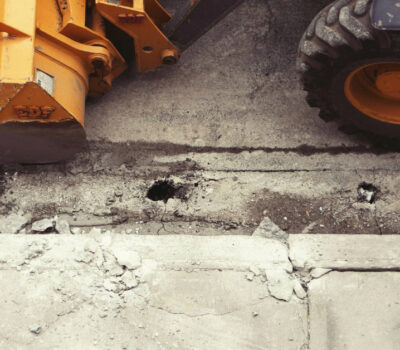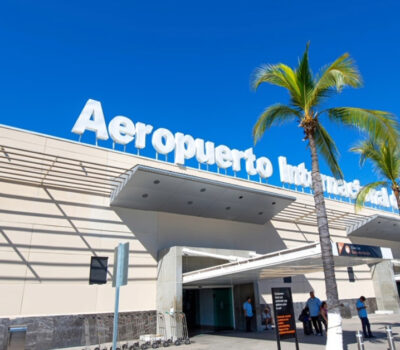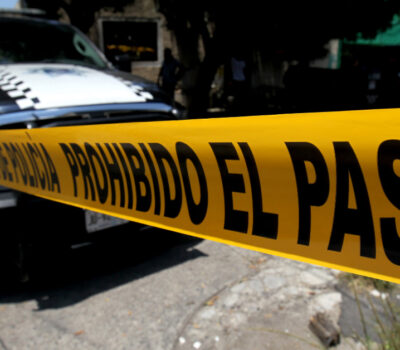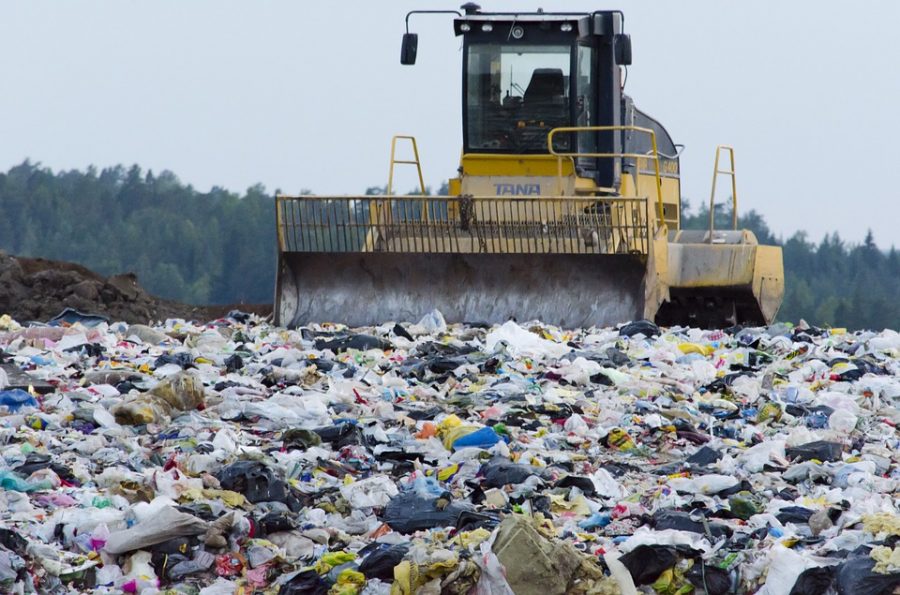According to a World Bank report, Mexico is the country that generates the most garbage in Latin America.
In an analysis of the impact that waste will have on each region in the future, the agency warned that countries such as Sub-Saharan Africa or South Asia, whose waste will triple in a few years, will experience a serious ecological crisis if no provisional measures are taken.
On this side of the pond, the same will happen with Mexico, Argentina, and Chile, whose daily levels of waste are very high, and continue to climb.
Think of a common day: From . . .
CONTINUE READING THIS NEWS ARTICLE BY BECOMING A PVDN SUBSCRIBER!
>> SUBSCRIBE TO OUR NEWS ON WHATSAPP CHANNELS HERE (FROM YOUR CELL PHONE!)<<
Popular posts:
 Citizens of Puerto Vallarta Still Feel Safe Putting The City in Seventh Place in the Country Puerto Vallarta, Jalisco, continues to shine as one of Mexico's safest cities, securing its position among the nation's top 10 cities where citizens feel most secure, according to the latest National Urban Public Safety Survey (ENSU) conducted by INEGI. The survey, which evaluates citizen perceptions of safety, covers the first quarter of the year and…
Citizens of Puerto Vallarta Still Feel Safe Putting The City in Seventh Place in the Country Puerto Vallarta, Jalisco, continues to shine as one of Mexico's safest cities, securing its position among the nation's top 10 cities where citizens feel most secure, according to the latest National Urban Public Safety Survey (ENSU) conducted by INEGI. The survey, which evaluates citizen perceptions of safety, covers the first quarter of the year and… Unchecked Growth of Platforms Like Airbnb is Ruining Puerto Vallarta Puerto Vallarta, Mexico - In Puerto Vallarta, the proliferation of digital lodging platforms, notably Airbnb, has sparked a surge in real estate development over the past decade, particularly in central areas of the municipality. This trend, as highlighted by Alfonso Baños, a researcher and doctor in City, Territory, and Sustainability at the University of Guadalajara…
Unchecked Growth of Platforms Like Airbnb is Ruining Puerto Vallarta Puerto Vallarta, Mexico - In Puerto Vallarta, the proliferation of digital lodging platforms, notably Airbnb, has sparked a surge in real estate development over the past decade, particularly in central areas of the municipality. This trend, as highlighted by Alfonso Baños, a researcher and doctor in City, Territory, and Sustainability at the University of Guadalajara… Increase in Extortion Attempts Rattles Puerto Vallarta’s Business Sector Puerto Vallarta, Mexico - In recent weeks, Puerto Vallarta's business community has been shaken by a surge in extortion attempts, with between 12 and 16 cases reported in just the last two weeks alone. This concerning trend was highlighted by the newly appointed president of the Business Coordinating Council (CCE), Juan Pablo Martínez Torres, who…
Increase in Extortion Attempts Rattles Puerto Vallarta’s Business Sector Puerto Vallarta, Mexico - In recent weeks, Puerto Vallarta's business community has been shaken by a surge in extortion attempts, with between 12 and 16 cases reported in just the last two weeks alone. This concerning trend was highlighted by the newly appointed president of the Business Coordinating Council (CCE), Juan Pablo Martínez Torres, who… Part of Basilio Badillo Street in Puerto Vallarta is to Close for Two Months Puerto Vallarta, Mexico - In an effort to enhance infrastructure and improve the quality of transportation in the Emiliano Zapata neighborhood, the Puerto Vallarta City Council has announced the closure of a significant section of Basilio Badillo Street. The affected area, spanning from Insurgentes to Aguacate, will undergo extensive paving and infrastructure upgrades over the…
Part of Basilio Badillo Street in Puerto Vallarta is to Close for Two Months Puerto Vallarta, Mexico - In an effort to enhance infrastructure and improve the quality of transportation in the Emiliano Zapata neighborhood, the Puerto Vallarta City Council has announced the closure of a significant section of Basilio Badillo Street. The affected area, spanning from Insurgentes to Aguacate, will undergo extensive paving and infrastructure upgrades over the… Puerto Vallarta Welcomes Record-Breaking Cruise Visitors, Boosting Local Economy Puerto Vallarta, Mexico - Puerto Vallarta, known as the "green pearl of the Mexican Pacific," has marked an impressive start to the year, welcoming a staggering 177,000 passengers aboard 58 cruise ships during the first quarter. These figures, revealed by the Administration of the National Port System (ASIPONA), reflect a substantial economic injection of 21…
Puerto Vallarta Welcomes Record-Breaking Cruise Visitors, Boosting Local Economy Puerto Vallarta, Mexico - Puerto Vallarta, known as the "green pearl of the Mexican Pacific," has marked an impressive start to the year, welcoming a staggering 177,000 passengers aboard 58 cruise ships during the first quarter. These figures, revealed by the Administration of the National Port System (ASIPONA), reflect a substantial economic injection of 21… FAKE NEWS ALERT: American Reported Missing in Puerto Vallarta Found After Four Hours, Not Four Years Recent false claims circulating online regarding an alleged four-year disappearance of an American in the jungles of Puerto Vallarta have been debunked. The individual was actually reported missing on April 9 and found a mere four hours later, highlighting the swift and efficient response of local authorities in safeguarding the community. This incident underscores the…
FAKE NEWS ALERT: American Reported Missing in Puerto Vallarta Found After Four Hours, Not Four Years Recent false claims circulating online regarding an alleged four-year disappearance of an American in the jungles of Puerto Vallarta have been debunked. The individual was actually reported missing on April 9 and found a mere four hours later, highlighting the swift and efficient response of local authorities in safeguarding the community. This incident underscores the… New Direct Flight from Prague to Puerto Vallarta Announced for Autumn-Winter Season In a move set to bolster international tourism to Puerto Vallarta, Jalisco, a new direct flight route from Europe has been unveiled, marking a significant expansion in the city's air connectivity. Beginning in October of this year and continuing through April 2025, travelers from the heart of Europe will have the opportunity to embark on…
New Direct Flight from Prague to Puerto Vallarta Announced for Autumn-Winter Season In a move set to bolster international tourism to Puerto Vallarta, Jalisco, a new direct flight route from Europe has been unveiled, marking a significant expansion in the city's air connectivity. Beginning in October of this year and continuing through April 2025, travelers from the heart of Europe will have the opportunity to embark on… Woman Fatally Shot by Husband in Puerto Vallarta On Tuesday evening, the Puerto Vallarta Municipal Police responded to a distress call from the medical personnel at the Social Security Clinic 42 Hospital. The call, received just minutes before 5:40 pm, reported a woman's death due to gunshot wounds. The incident unfolded when authorities were alerted to a grievous situation, indicating a domestic tragedy.…
Woman Fatally Shot by Husband in Puerto Vallarta On Tuesday evening, the Puerto Vallarta Municipal Police responded to a distress call from the medical personnel at the Social Security Clinic 42 Hospital. The call, received just minutes before 5:40 pm, reported a woman's death due to gunshot wounds. The incident unfolded when authorities were alerted to a grievous situation, indicating a domestic tragedy.… Public Urged to Maintain Vigilance in Banking Transactions to Prevent Theft in Puerto Vallarta Puerto Vallarta, Mexico - In Puerto Vallarta, the call for heightened vigilance during banking transactions reverberates through the community as authorities emphasize the importance of proactive security measures to deter potential theft incidents. The Directorate of Preventive Police and Municipal Roads underscores the shared responsibility of safeguarding public order and the property of residents, emphasizing…
Public Urged to Maintain Vigilance in Banking Transactions to Prevent Theft in Puerto Vallarta Puerto Vallarta, Mexico - In Puerto Vallarta, the call for heightened vigilance during banking transactions reverberates through the community as authorities emphasize the importance of proactive security measures to deter potential theft incidents. The Directorate of Preventive Police and Municipal Roads underscores the shared responsibility of safeguarding public order and the property of residents, emphasizing… Municipal Police Officers Linked to Abuse of Authority Case in Puerto Vallarta Puerto Vallarta, Mexico - Two municipal police officers in Puerto Vallarta, identified as Nadia Araceli Esmeralda “N” and José Aldo “N”, have been formally linked to a legal process for the crime of abuse of authority. The decision came from Susana Azzaid Betancourt Flores, Control and Oral Judge of the Eighth District, based in Puerto…
Municipal Police Officers Linked to Abuse of Authority Case in Puerto Vallarta Puerto Vallarta, Mexico - Two municipal police officers in Puerto Vallarta, identified as Nadia Araceli Esmeralda “N” and José Aldo “N”, have been formally linked to a legal process for the crime of abuse of authority. The decision came from Susana Azzaid Betancourt Flores, Control and Oral Judge of the Eighth District, based in Puerto…


